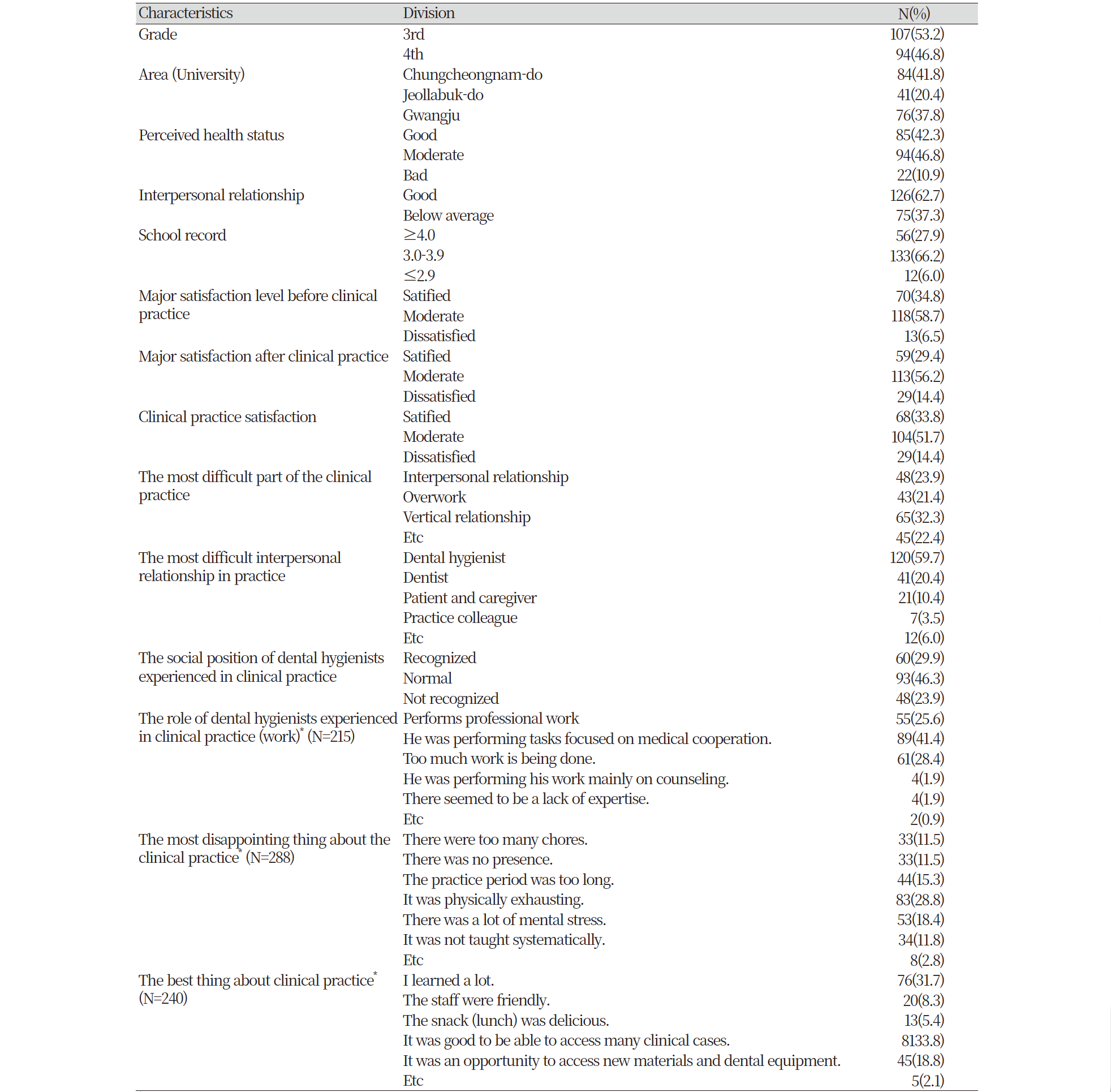Abstract
This study aimed to verify the degree of clinical practice transition shock, resilience, and academic burnout of dental hygiene students, and analyze factors affecting academic burnout. From September 1 to September 20, 2022, this study collected data from 201 dental hygiene students who experienced clinical practice, and subsequently conducted a t-test, one-way ANOVA, Pearson correlation analysis, and multiple regression analysis using the SPSS Statistics 22. The transition shock and resilience showed a significantly negative correlation (r=-0.211), transition shock and academic burnout showed a significantly positive correlation (r=0.484), and resilience and academic burnout showed a significantly negative correlation (r=-0.568). Regarding factors affecting academic burnout, academic burnout increased when the transition shock was greater (β=0.263,
Figures & Tables

Table 1. General characteristics of study subjects (N=20)


